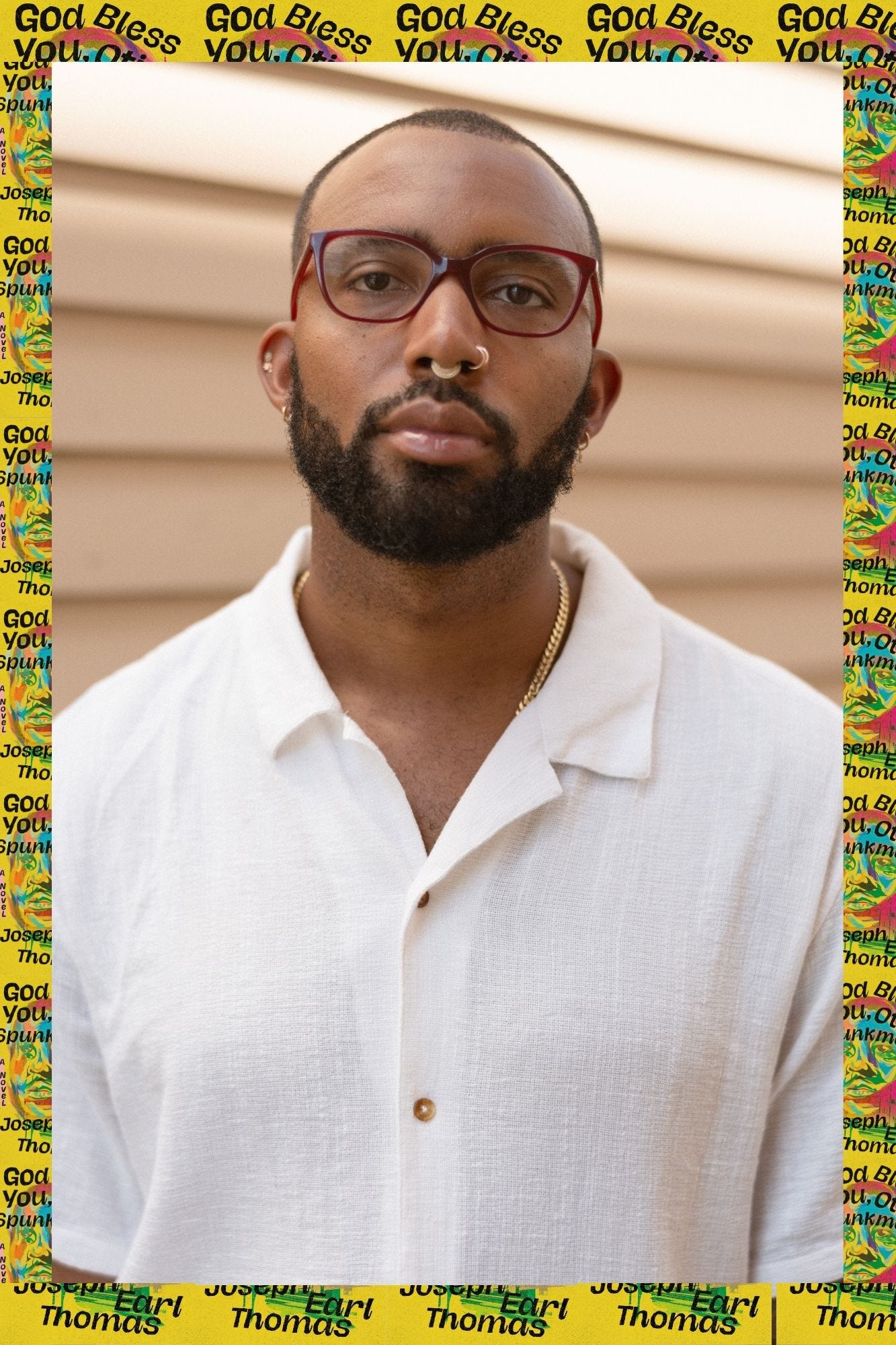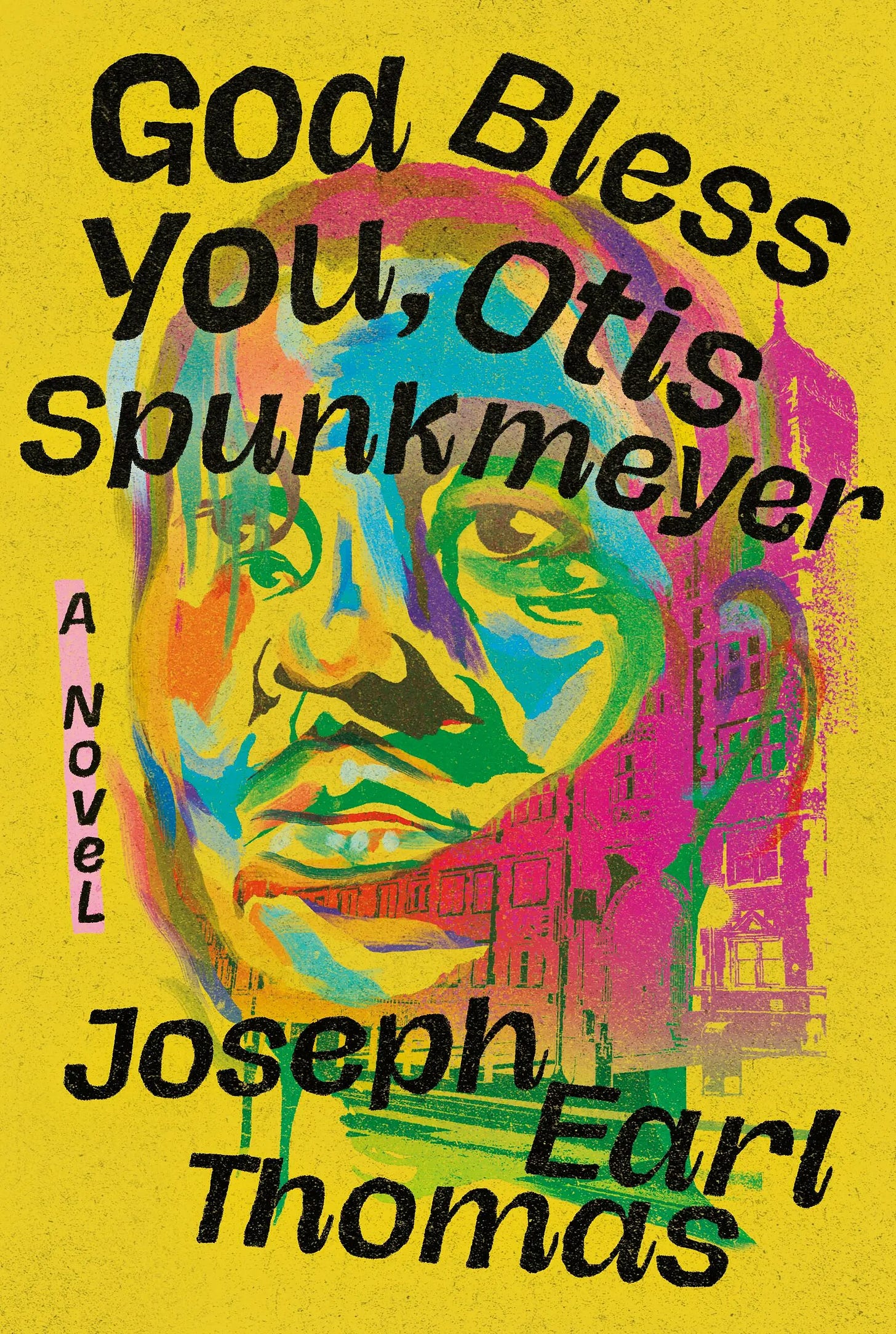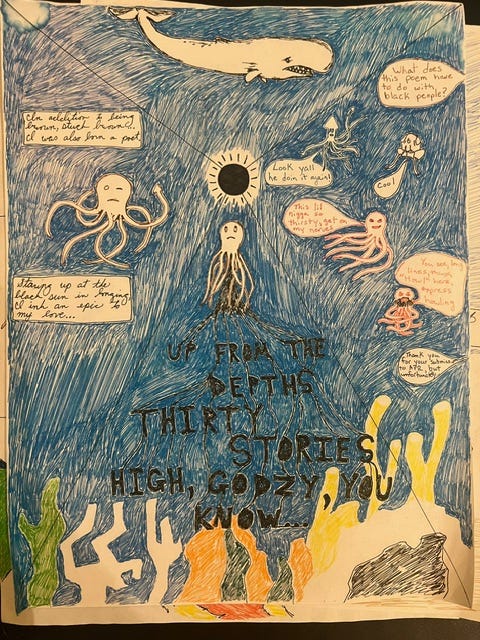Read to Know Basis: Joseph Earl Thomas
The author of God Bless You, Otis Spunkmeyer reveals his muffin muse.
Read to Know Basis is a weekly interview series with authors. It features debut authors and established writers talking about reading, writing, and of course snacks. This series is free to all. If you like what you read considering subscribing to support the work of Unstacked, and of course go out and buy the book!
Joseph Earl Thomas is the author of Sink, a memoir, the novel God Bless You, Otis Spunkmeyer, and the short story collection Leviathan Beach (Grand Central, 2025). His prose, poetry, and criticism has been published or is forthcoming in The Kenyon Review, Virginia Quarterly Review, Dilettante Army, The Paris Review and The New York Times Book Review. Joseph teaches writing at Sarah Lawrence College, and courses in Black Studies, Poetics, Video Games, Queer Theory and more at The Brooklyn Institute for Social Research.
What are five words to describe your book?
Horny hospital snack time realism.
What are three books that are in conversation with your book?
So many, but Saidiya Hartman’s Scenes of Subjection (1997), Mitchell Jackson’s Survival Math, and Gayl Jones’ Mosquito come to mind early on.
What is the strangest thing you googled while researching/writing this book?
When I was a medic, lots of soldiers were obsessed with those Otis Spunkmeyer muffins we got by the box full, then my mom and them always talked about loving them in prison, and then when I ended up working in the ER they were the best free snack around. So I looked up, half jokingly, do Otis Spunkmeyer Muffins have a monopoly on snack provisions for the military, the hospital, and the prison system? And for lots of black folks these three institutions tend to feel similar in how they’re overrepresented in our lives collectively, and how absolute power is exercised. Education will be another novel.
Describe your ideal reader?
Definitely someone suspicious of the terms and requirements of progress, especially when it feels good.
For this book especially, hospital workers, not just physicians, but the ancillary staff in neighborhoods where the ED is primary care, all the techs, phlebotomists, nurses, social workers, respiratory therapists, housekeepers and the folks in dietary.
What is a piece of writing advice that you’ve received that you think is really bad? What is a piece of writing advice that you think is really good?
To explain more, to never write about “trauma,” both of which feel like odd capitulations to power. The good advice was to take risks and consider every sentence an experiment, but never elevate yourself (or your comic proxies) above anyone else on the page.
What has changed for you as a writer since becoming a published author?
It’s definitely more difficult to write, and this is related to the problem with explaining as well as the hustle of working a bunch of jobs while being a single parent and the one who supposedly “made it out.” Too many people who have nothing depend on me. Real old negro problems. And then do I just repeat the comforting things in proper ruling class syntax, so that the work does well and I don’t risk confusion or misreadings, or do I trust readers and pose a set of productive challenges, and try to translate something like true thinking and feeling and experience and contradiction as best I can? There are consequences either way.
What is a book of your life?
Mat Johnson’s Pym.
What are you reading right now? And what book are you desperate to read next?
I’m reading Alexander Weheliye’s Feenin right now, and looking towards Elisa Gabbert’s Any Person is the Only Self, and Vanessa Angélica Villareal’s Magical/Realism.
What book are you an evangelist for?
Nafissa Thompson-Spires’ Heads of the Colored People. I will never forget how thankful I was to read that book for the first time. Still one of the strangest, blackest, funniest, and inventive short story collections I’ve ever read.
Who is your literary crush?
Fernanda Melchor. Her voice is incredible, the syntax confounding, musical, gritty, and curious across genres or the refusal of them, and I love listening to her speak. She’s also one of few writers who can be funny, but also make me uncomfortable on the page. But I was also thinking of Danielle Evans, if you’ve never seen her read, you should.
If you could not be a writer what would you do?
A doctor, nurse, or PA. I dropped out of Physician Assistant school back in the day when I found out you could get paid to read books in graduate school instead. If not, I’d be working for an organization like Doctors Without Borders, which was an older dream after I quit trying to draw undersea comics about octopuses and such. [see images]
You’re invited to a literary potluck, what are you bringing? Could be food or drink.
Rum cake, collard greens, and receipts.
Connect with Joseph: Substack | Instagram | Website








I love how both of his author crushes are people he likes to hear speak. There is something about hearing an author that connects differently to the work.
I love that they’d bring a rum cake to potluck ~ me too!